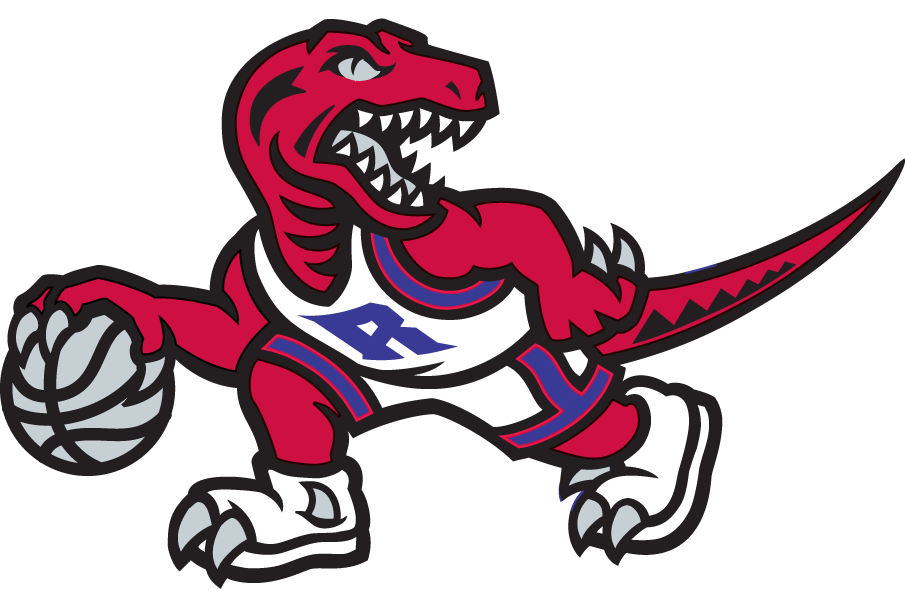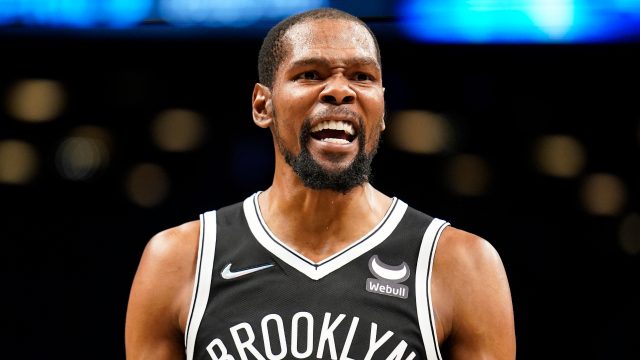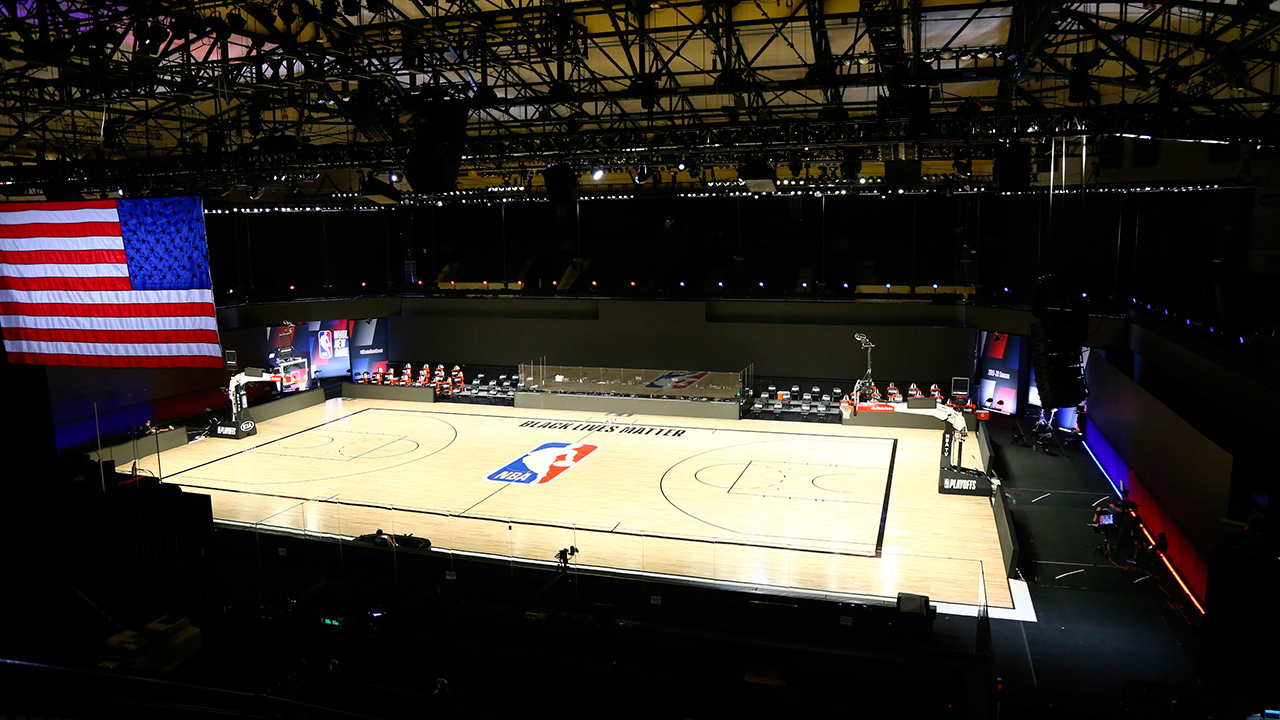As the world around them went mad, reaching new highs (or lows, depending on your perspective) even for a league that seems closer to a simulation than something that occurs in real time, involving real people, the Toronto Raptors focused on their knitting.
It was almost quaint.
As Kevin Durant announced that he wanted out of Brooklyn – before even playing one year of a four-year contract extension worth $189 million, and having had his run of the franchise since making them his preferred choice three years ago – Toronto decided to reward Chris Boucher for his steady and incremental growth from an undrafted wild card picked off the scrap heap to a tough-minded role player who plays with the kind of fearlessness that the Raptors believe is part of their DNA.

As it became clear that Kyrie Irving the brilliant, gifted, basketball savant who also has shown himself as one of professional sports most unreliable performers, setting new marks for professional self-indulgence would be following Durant out the Nets’ door, the Raptors were giving a two-year deal to 34-year-old Thaddeus Young, who was buried on the Spurs bench when Toronto traded for him at the deadline last February. Now the Raptors see him as a key to help them unlock some of their funkiest potential lineups and the kind of bedrock character veteran that can help create a steady, professional environment for the likes of youngsters Scottie Barnes and Precious Achiuwa.
By the super-charged standards of current NBA finances, the deals were barely blips. Boucher will get $35.2 million over three years, all guaranteed, while Young will reportedly get $16 million over two years. But they keep the 48-win Raptors trending in the right direction, or at least that’s the hope.
Toronto was still looking to add players using their mid-level exception – they could offer a four-year deal beginning at $10.49 million – but in the early going of free agency hadn’t reached an agreement with anyone, but even in that vein expectations going into the process were low. Toronto was looking to add a role player – some size or some shooting or some playmaking. Nothing that would stop the world from turning.
Meanwhile, the rest of the NBA was in a kind of paralysis as the league’s contenders did a rapid inventory of whether or not they could suddenly move heaven and earth to acquire a player who has recently missed an entire season due to a torn Achilles and missed 22 games this year and will be 34 when next season begins.

The NBA was supposed to be moving away from its so-called super-team era, where the best and most determined players forced their way out of one franchise and on to the next to team with their preferred members of the hoops glitterati with gleams of championship legacies in their eyes.
And for good reason: it hasn’t worked particularly well. The Los Angeles Lakers – the team that LeBron tried to build – won one title in the bubble in 2020 and has otherwise been a smoking crater, missing the playoffs entirely in two of James’ four seasons in LA and getting eliminated in the first round the other. They have little prospect of changing course now – which is why they’re one of the teams reportedly desperate enough hope to take Irving, betting his talent will out-weigh his baggage, a wager multiple teams have lost before.
And the Brooklyn Nets? Three years ago they were a plucky organization built on player development and savvy drafting. Then Irving and Durant decided Brooklyn was where they wanted to forge their superstar destinies together, eventually deciding that they needed to bring in James Harden to put them over the top. The result has been one of the NBA’s all-time fiascos, featuring injuries, coaches being fired and hired at the stars’ request, pals being given contracts and playing time at the stars’ request, countless games lost to injuries and – in Irving’s case – a refusal to be vaccinated and eventually being swept in the first round this past April.
All they have to show for it is Ben Simmons – another superstar talent with a very shaky on-court resume – and four years of draft picks owed to the Houston Rockets for acquiring Harden, who now plays for Philadelphia.

Granted, in comparison, it doesn’t make the Raptors all that interesting, if you’re definition is how much airtime a team can earn in the ecosystem of chatter shows that both live on the endless drama that seems to encapsulate the league and fuel it.
Drafting and developing, finding under-valued players elsewhere, and figuring out how to make unconventional lineups work under the guidance of a committed coaching staff is pretty impressive: How many teams can lose five starters from a championship team and play at a 60-win pace the year after, as Toronto did in 2019-20? How many teams can visit the draft lottery as they did in 2020-21, lose their franchise player, and then bounce back to relevance in a very tough conference as they did last season.
Few to none, is the answer.
But it’s a hard storyline to turn into a headline – ‘steady as she goes’ – doesn’t move the needle all that much.

But the Raptors under president and vice-chairman Masai Ujiri and general manager Bobby Webster have generally opted for incremental progress over grasping for shiny pennies. Even their signature move – trading DeMar DeRozan in the deal that brought back Kawhi Leonard and a championship in 2019 – was only the final stage in a multi-year build that allowed them to trade an All-NBA player and a promising lottery pick and still have enough depth to surround Leonard and Danny Green with championship-calibre teammates.
It’s why the Raptors scoffed when outside forces recently tried to make it sound like the time was right to trade OG Anunoby. It’s why they’ll likely monitor the maelstrom surrounding Durant and most likely end up on the sidelines, letting Scottie Barnes – who almost certainly would have to be the centre piece of any deal with the Nets, along with Anunoby and Gary Trent Jr. – develop year after year along with a young, intriguing core.
When the time is right, the Raptors have shown they’ll strike, but more often than not they’ve shown that being patient and allowing teams to grow and breathe yields a worthy crop of talent.
It’s not the kind of approach that grabs all the attention in the NBA on days like Thursday —or ever — which is fine.
But sometimes it’s okay to keep moving forward – even imperceptibly – before the time comes to arrive all at once.


